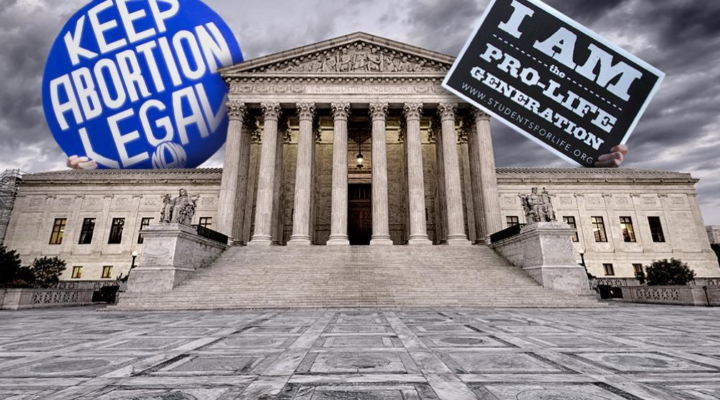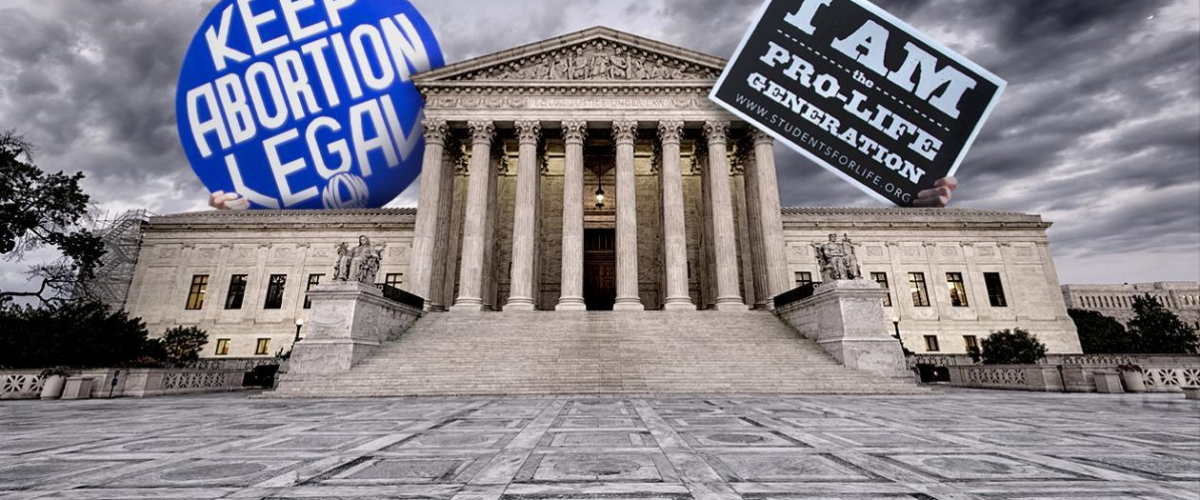In the wake of the Supreme Court’s hearing of Mississippi’s 15-week abortion ban, people around the country are waking up to the fact that Roe v. Wade is in peril. Among those sounding the alarm have been a group of female clergy, and their voice has been a clarion call in support of women’s reproductive rights. They risk much speaking out about a controversial issue, and it is time for their male colleagues, like myself, to join them in those risks.
In some ways, it makes sense that the faith-based voices at the forefront of the rights to make abortion safe and accessible are women’s, but reproductive justice is not just a women’s issue — it is a human rights issue. More than that, it’s a faith issue. Male clergy ought to join their female colleagues in advocating for reproductive rights.

Michael Woolf
The Supreme Court’s questions seem aimed at ensuring that religion does not rise to the forefront in these discussions.
Justice Samuel Alito asked Mississippi Solicitor General Scott Stewart, “Are there secular philosophers and bioethicists who take the position that the rights of personhood begin at conception, or at some point other than viability?”
The inference seems to be that because some philosophers believe life begins at conception, religion is not at play in the Supreme Court’s decision. Such statements belie the central fact that the Supreme Court seems ready to impose a religious position about life’s start on a country that overwhelmingly does not share that perspective.
The imposition of a theological position on our nation strikes at the heart of my religious beliefs. As an ordained American Baptist minister, one of the fundamental tenets of my faith is the separation of church and state. The government has no business imposing a theological position on a diverse nation.
“Religious understandings of life’s beginning differ.”
Religious understandings of life’s beginning differ. Our Jewish neighbors reject the notion that life begins at conception. So too do our Muslim friends, who propose four months as the point when a fetus gains a soul.
Christian perspectives on this fundamental question run the gamut, and the influential position that life begins at conception is a recent invention. In the 1970s, even the Southern Baptist Convention was pro-choice, but decades of intense messaging from pro-life advocates have made it appear as if the Christian position is simply that life begins at conception.
Women’s access to reproductive health care and dignity are more important than these philosophical debates, anyway. When someone makes a decision to have an abortion, they make the choice that is right for them in their circumstances. To overturn Roe v. Wade only serves to push those decisions into the dark.
I have to wonder how many women will make the decision not to seek pastoral conversations on the topic due to increased shame and guilt. What already was a vulnerable conversation becomes harder in this climate. Worse yet, laws like those in Texas might criminalize pastoral counseling that supports women in making the choice that is right for them.
“It’s time for clergy to step out of the shadows.”
My faith makes it clear that I stand on holy ground when I affirm a woman’s right to choose. It’s time for male clergy like myself to risk saying so out loud. My colleagues often will admit that they hold this position, but they fear speaking out about such a controversial topic. Worse, they might feel that as men they don’t have to, that it’s not their fight.
It’s time for clergy to step out of the shadows. The female clergy leading the fight for faith-based support of reproductive rights might just be the light in the darkness that leads us home. Or at least it might lead us into the pulpit with courage.
Michael Woolf serves as senior minister of Lake Street Church of Evanston, an American Baptist Churches USA and Alliance of Baptists congregation in Evanston, Ill. He earned a doctor of theology from Harvard Divinity School, where he is currently a postdoctoral fellow. Follow him on Twitter @RevMichaelWoolf.
Related articles:
SBC calls for ‘immediate abolition of abortion without exception or compromise’
When being ‘pro-life’ really isn’t: How I became a Democrat who opposes abortion | Analysis by Chris Conley


